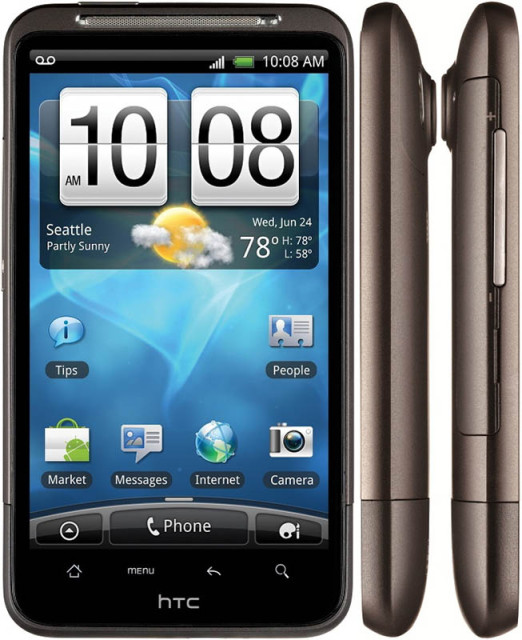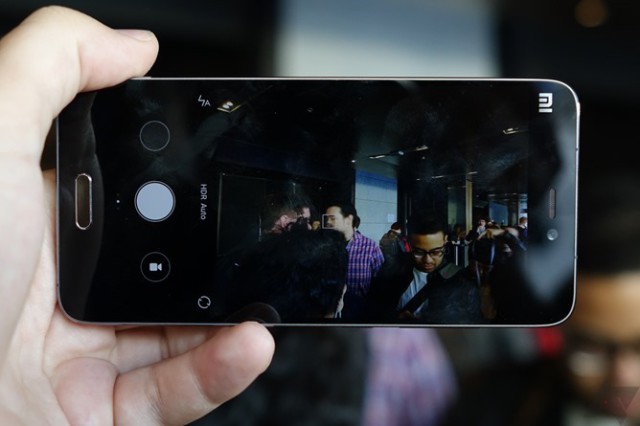The first part of an extended article on the Nexus line and its future role in development Android.

Smartphones are inherently cyclical products. But if you notice that the cycle has begun to slow down in the past few years, then everything is in order: you are not alone in your opinion and it is quite possible that this is actually the case.
Consider this: smartphones already have a well-established list of characteristics and functionalities, according to which we evaluate the overall quality of the device. Some of them are more subjective (for example, design), but many are quite objective, even if it is sometimes difficult to adequately compare them. How fast is the phone? How long does the charge hold? How well does the camera perform at night (on video, in slow motion, etc.)? What is the safety margin of the device, is it additionally protected? Does it break easily? What are the dimensions of the case? Is the display good? Among these criteria, some characteristics are gradually becoming self-evident. 2K display? Yes, of course, such displays are now in every phone more than $ 500, not manufactured Apple. LTE? A practically mandatory requirement. A high-resolution camera approaching top-end models? Yeah. Comparatively good battery life? Yes, what else do you have?
We must not forget that all this was not always available to us. HTC ThunderBolt on a single charge often struggled to make it to the end of the day, or even half of it. Some phones were so slow that they were on the verge of being unusable for certain conditions. Could you go back to G1? Why even Droid Charge? Even so, these devices were almost like today's smartphones, only worse. The situation has certainly improved. Some problems were objectively completely resolved and smartphones turned, in general terms, into good products, which could not be said with such confidence 5-6 years ago.
Over the six years of my work in Android Police, I closely watched the development of Android and most of the global changes in smartphones based on Android I would boil down to two aspects:
- The main technological progress that improves the quality of the most important elements of the smartphone and the fruits of which are gradually starting to be used by all manufacturers.
- Google's work on Android subjectively improving the user experience.
We can now see improvements in aspects of smartphones such as video quality, low light performance, shooting speed and camera control. And this is true: if smartphones had not improved at all in five years, we would have stopped buying them. But the changes are still cyclical. Five years ago, it was already possible to shoot video with a smartphone, even in HD quality. It was possible to take a photo with a flash in a dark place. Some models even had a burst mode. Not to mention the fact that even then it was possible to post pictures on the Internet almost instantly.

For the most part, an older, less beautiful, and comparatively worse version of your current smartphone.
A five-year-old smartphone had two cameras, a display, an always-on mobile Internet, a lithium-ion battery that did not last as long as we would like, the device made calls, allowed us to explore the Internet, was a portable GPS / navigation device and had a dial applications. Is there any fundamental difference from today's smartphone? There may be some things (NFC payments, for example), but there has been no real change in the paradigm of using smartphones.
I'm sorry, you're here for the Nexus. And I am leading to this. Here's my point: Have smartphones gotten better in the past five to six years? Undoubtedly. Sometimes this difference is quite noticeable. Are today's smartphones so strikingly different from their predecessors five or six years ago? No. They are surprisingly similar to them. Over the past two and a half years, the rate of 'tangible improvements' has slowed down. Camera? We have 4K, slow motion, a more usable low-light mode and sharper autofocus. These changes, I would call significant, but if we talk about normal daily use, then the cameras of smartphones have not really become incredibly better. Only in some narrow aspects. Screens? Super AMOLED displays may well be called the pinnacle of what technology has achieved, but, again, the changes in two years cannot be called clear and obvious. Performance? Yes, phones have become faster, but the changes are comparable to those of previous years. Battery life? I'm not even sure if there has been an improvement.

Commercialization example: Xiaomi Mi 5, an inexpensive device with impressive characteristics
You may have heard the term 'commercialization' used in relation to smartphones. A similar term may have been applied to the case: smartphones have become so similar, so much is possible and a kind of 'race to the bottom' begins, during which the manufacturer who can fit top-end components into the best plastic / glass / metal case with a camera and the Internet will win and sell it for less. At the very least, this view of things is quite broad and does not take into account special cases in the market, such as Samsung and Apple: the influence of these companies' brands successfully allows them to dictate the average retail price of their products. But all other players find it difficult to find a balance between differentiation, efficient costing and profitability to stay competitive. Moreover, at the same time, they should not devalue their products and become like competitors, the cost of whose products they cannot surpass.
But what does the Nexus have to do with it?
Let's change the subject before I bore you with commercialization. I want to start with an initial thesis: I believe Nexus has two key advantages over vendors such as LG, Sony, Xiaomi, Motorola or Huawei and now more than ever it is necessary to use these advantages.

First, the Nexus program doesn't need to make money at all – especially in the short term. It doesn't even need to be profitable. Google generates huge revenues from its core business (selling ads in search) that are in no way dependent or indebted to what Google is doing with the Nexus. What if the phones are selling well? Search ad revenue is likely to grow. What if phones aren't selling well? Search ad revenue will not be affected. For contrast, here's an example Xiaomi. The core of the company's business model is the sale of a huge number of smartphones. If they don't sell enough devices, their core business is at risk. Other companies are less risky, like the same LG or Huawei, but in the end they both receive income from selling products. It is not good for a business to have a product in its portfolio that is unprofitable, because the whole point of a business is to make a profit from sales. I admit there are goals such as building brand loyalty, ecosystem and big name, but they are entirely secondary.
Second, Google can do whatever it wants with Android and its own services. As for me, it is Android and Google services that are the basis of the innovative movement, competently 'pushing' Android smartphones forward and their influence will only grow in the coming years. Android itself begins to play a more important role in the process of differentiation of devices. But Google can do something that none of the manufacturers can (if we talk about methods without losing access to the Play Store): change the main functional components of the system, because it owns and determines the composition Android around the world, for excluding China and Amazon.
And that gives the Nexus a power, a power that no other Android -based smartphone maker has and that Google is using more and more. I propose to travel back in time and follow the development of this strategy … (to be continued)
Original material by David Ruddock
Elir: in the first part, perhaps the most voluminous material I have chosen for the Gazebo, the author analyzes the changes in smartphones, but makes comparisons not with the previous generation of devices, but recalls his experience five years ago. Such parallels are not often found, sometimes due to the imposed comparisons of supposedly significantly changed characteristics, we do not even think about whether they are so significant, we are just looking for the best experience and the best characteristics. Thus, we play into the hands of commercialization and active Chinese manufacturers who are ready to do anything to make a profit, forcing us to buy their relatively inexpensive devices with close to top-end characteristics, but often not distinguished by good localization and software optimization. The topic is not new, but I like the presentation of the author, despite the sometimes prolonged passages and slang turns.
In the second part of the material, which will be released in a week, we will get acquainted with the author's main conclusion on the topic. In the meantime, the question is for the owners and those who have had experience of using the latest generation of Nexus devices: in your opinion, what are they lacking for confident competition Apple and Samsung?
